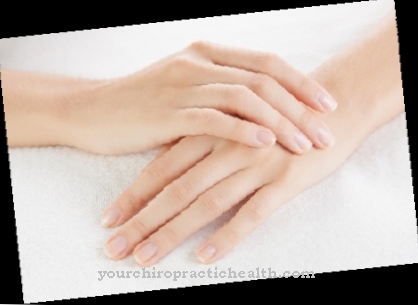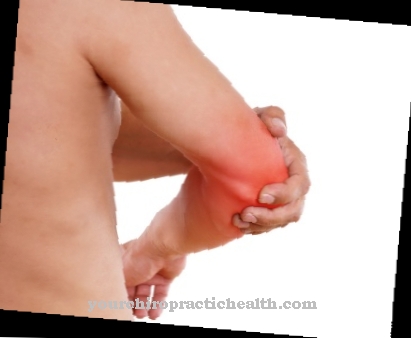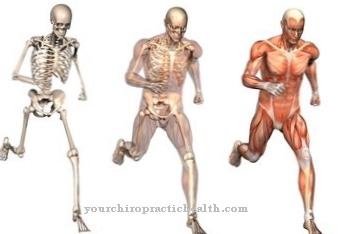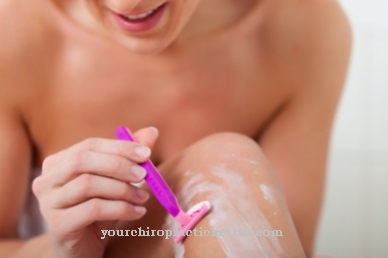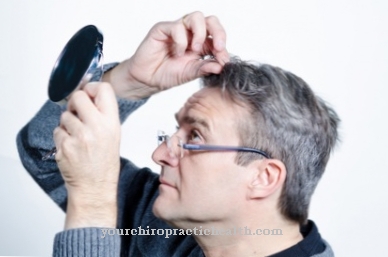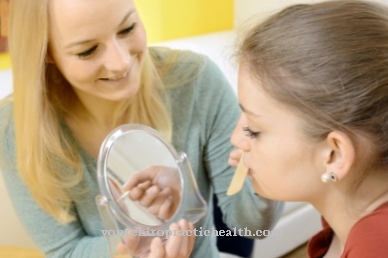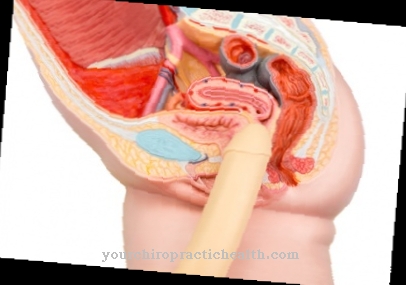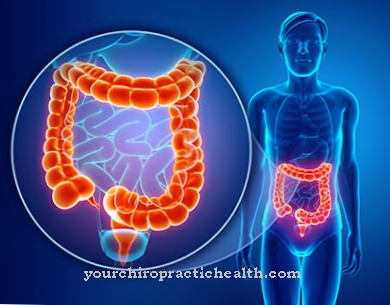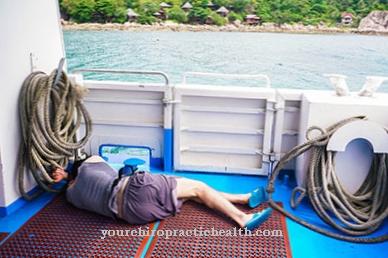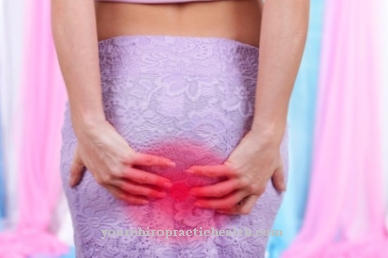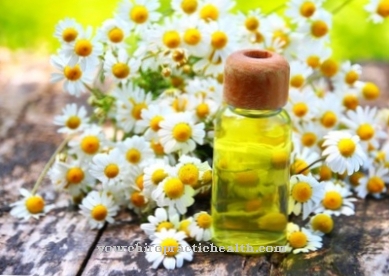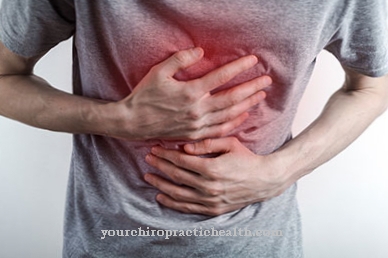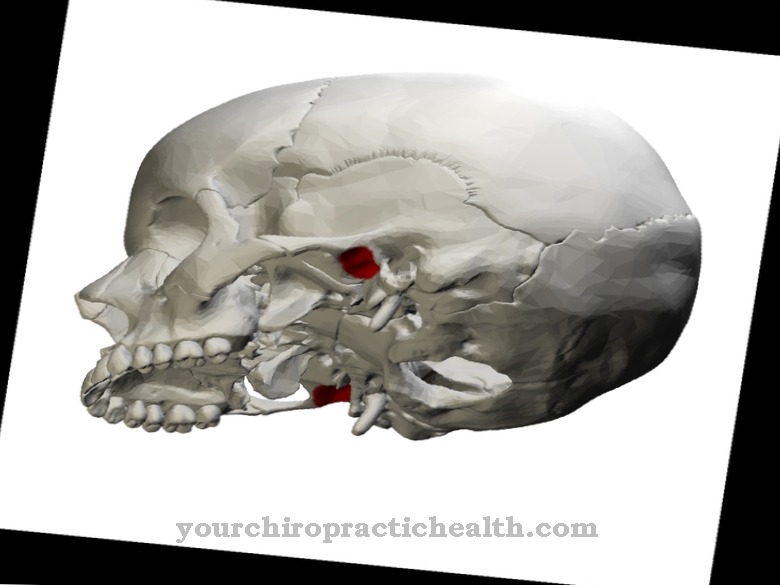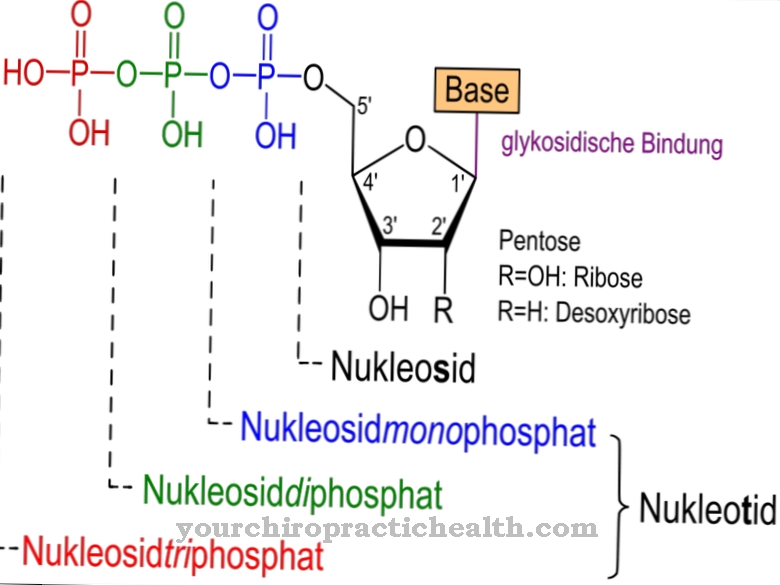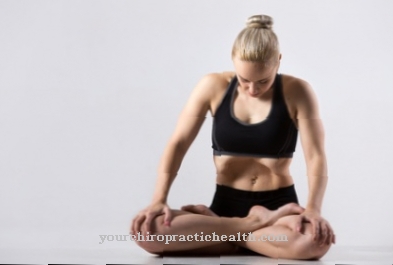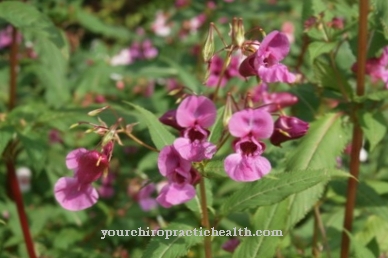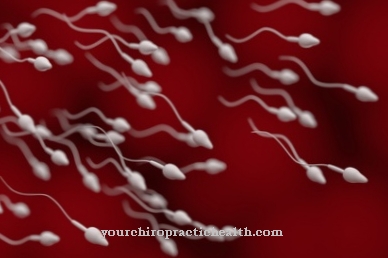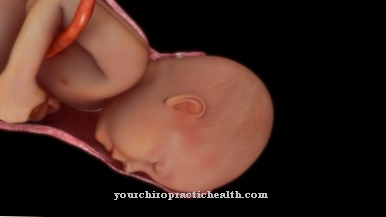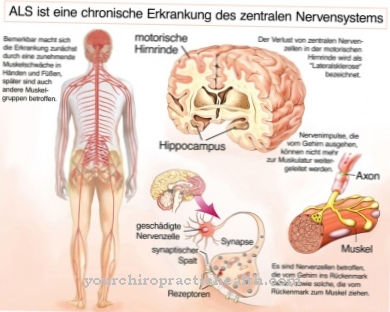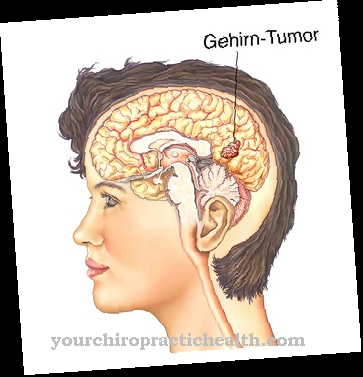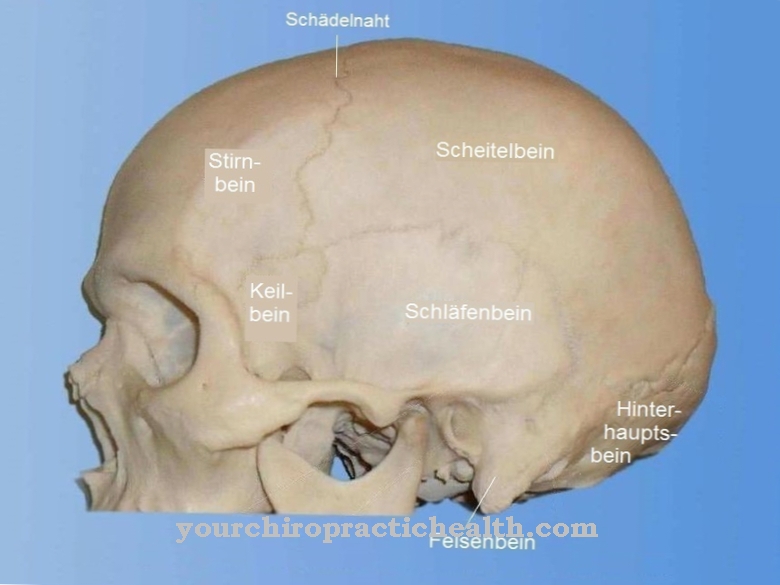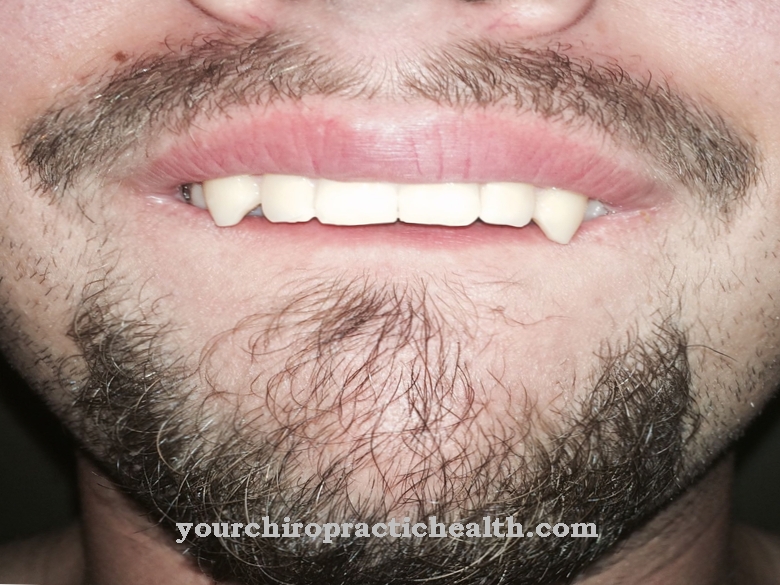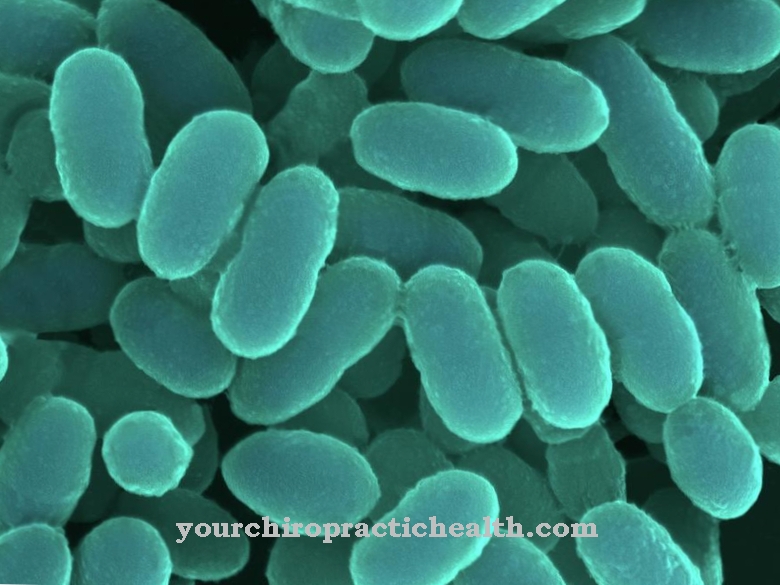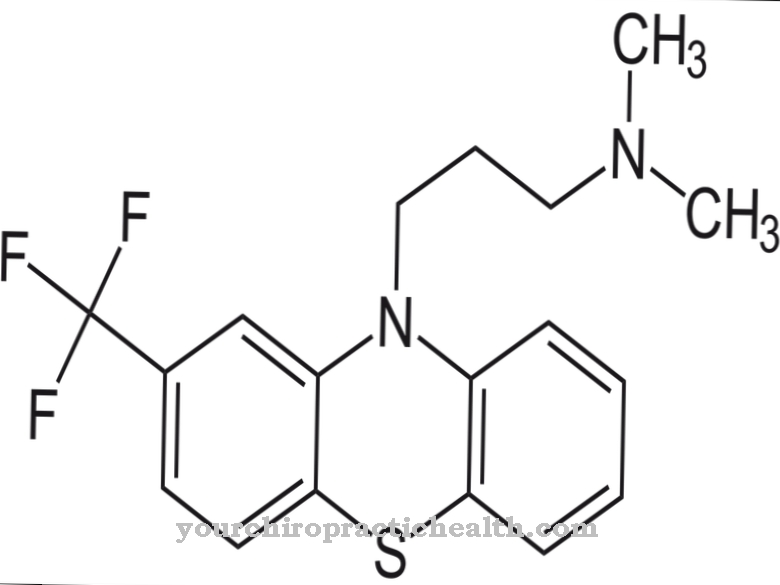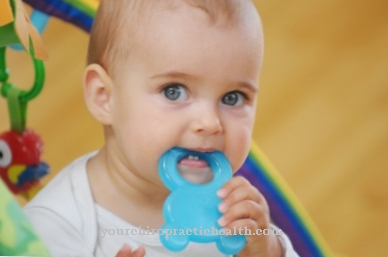Pimples are often a symptom of pubertal diseases such as acne or hormonal disorders. In addition to the known pimples, blackheads, pustules and papules differ significantly. Pimples are more common in men and, if left untreated, can lead to scarring. Therefore, in the case of severe pimple infestation or acne, a dermatologist should always be consulted for further treatment.
What are pimples?

Pimples and blemished skin are among the most common skin problems, especially in adolescence. During puberty, this skin reaction is a perfectly normal consequence of the homonic change. However, if you still suffer from it as an adult, you should find out about other causes and, if necessary, consider special treatment by a dermatologist.
As a rule, fat can be released through the pores, which forms a protective film over the skin. However, when the pores become clogged for various reasons, bacteria can build up under the skin, creating pimples, which in severe cases can even lead to scars. Pimples and blemished skin have long been considered the most common skin diseases in Germany. However, the prospects for treatment are very good.
causes
Basically, pimples only develop when sebum, dirt or sweat clogs the pores, so that bacterial inflammation can develop. The triggers for the clogging of the pores are diverse and should be clarified before treatment. Hormonal changes in the body, such as during puberty or pregnancy, are often associated with blemishes and pimples.
But even those who use the wrong cosmetics and may have sensitive skin can develop pimples. Especially women who use make-up every day should look for oil-free and hypoallergenic cosmetics that do not clog the pores. Thorough and regular hygiene is of course essential for deep cleansing of the skin. However, heredity can also be the cause of pimples.
Diseases with this symptom
- acne
- allergy
- Acne inversa
- Steroid acne
- Acne vulgaris
- Chloracne
Complications
There are usually no complications associated with pimples. A pimple is primarily a cosmetic problem, not a health one. For this reason, pimples usually do not need medical treatment. However, under certain circumstances, even a simple pimple can lead to complications.
This is the case, for example, when the person concerned tries to squeeze out the pimple or even prick it open. This procedure makes it very likely that pathogens will get into the pimple and cause it to become infected. So, such an infection can be a complication resulting from a pimple.
In rare cases, such an infection of the pimple can cause bacteria to penetrate deeper skin layers and cause inflammation there too. In the worst case, this can lead to sepsis. For this reason, squeezing a pimple is not recommended from a medical point of view.
However, these potential complications should not be a cause for concern. A common pimple that is very common will, in most cases, not lead to complications or problems unless it is treated improperly.
When should you go to the doctor?
As a rule, pimples do not pose a particular health hazard to the body and therefore do not need to be treated directly. In many cases, however, they appear unattractive and not aesthetic. Treatment by the doctor should therefore always take place if the patient feels uncomfortable as a result of the pimples or if there are inferiority complexes and decreased self-confidence. Treatment is possible in many cases and leads to a positive course of the disease.
Medical treatment is also necessary if the pimples cause pain or bleeding. The person concerned should also see a doctor if the pimples appear over a long period of time and do not go away on their own. Another condition may be causing the pimples and should be treated. As a rule, you can go to a pharmacy or your family doctor for simple pimples. A visit to a dermatologist, who can carry out specific treatment, is only recommended in serious cases.
Doctors & therapists in your area
Treatment & Therapy
Before treating the pimples, the cause should first be clarified and avoided if possible in the future. Then there are several ways to get rid of the pimples. Above all, it is important to use the correct means for cleansing the face.
A mild washing gel that cleans deep into the pores at the same time is best for irritated and blemished skin. UV light also opens the pores and can lead to a reduction in pimples after a relatively short time.
However, UV radiation should not be overdone, either in the tanning salon or in the sun. If you are more prone to pimples, you can also use a special acne cream that has an antibacterial effect.
Home remedies ↵ for pimples Dermatologists also often prescribe antibiotics to reduce the inflammation under the skin, so that the pimples go away.
Outlook & forecast
The outlook and prognosis for pimples depend crucially on the quality and duration of the treatment of skin problems. Small skin blemishes that have not become inflamed over a large area usually recede completely even without treatment. In that case, it may be better not to overcare the skin. If large-area pimples and acne are consistently treated with products that are tailored to the individual skin type, there is usually a good chance of improving the complexion.
Pimples caused by hormonal changes such as puberty often go away on their own when the body regains hormonal balance. Until then, you should urgently avoid tampering with pimples yourself, because improper handling significantly reduces the chances of a complete regression of the skin impurities. Improperly pressing on pimples can also leave deep tissue damage. This is how scars form. In addition, secretion that is in the pimples is distributed into the other pores and can thus trigger new inflammations.
In order for pimples to have the best possible prognosis, the treatment of the skin blemishes should be left to a specialist. He can also pass on tips and tricks with which the patient himself can provide support.
prevention
Pimples can be avoided in many cases as long as the causes are not hereditary or hormonal. Especially those who tend to have sensitive skin should not just look at the price of the right facial cleansing products.
Cosmetics should also be carefully selected and adapted to the individual skin type. When preventing pimples, however, it is not only important to consider the products that are used for external application.
A healthy and balanced diet is just as important. If you ingest too much fat and eat an excessive amount of sweets, this only promotes the clogging of the pores, so that pimples form. By contrast, pimples can be avoided with a varied diet that provides the body with sufficient vitamins and minerals.
You can do that yourself
In most cases, pimples appear around puberty. During this time, treatment is only possible to a very limited extent. Nevertheless, there are a variety of measures and home remedies that can be used for pimples.
Sufferers should usually avoid sweet and greasy foods to reduce pimples. This also includes giving up alcohol, cigarettes and other drugs. A high intake of water leads to an improvement in the symptom in most cases. In general, a healthy lifestyle has a positive effect on the disease. If there is pus in the pimple, it can be carefully removed. The skin can be supported with various care products. This includes moisturizing creams. Special creams and ointments for pimples can be purchased in the pharmacy. The drugstore usually has a good selection of different scrubs and masks for the face.
If the pimples appear due to poor personal hygiene, the body must be washed more often. For pimples after shaving, shaving foam and a razor with fewer blades help so that the skin is not too irritated by the shave. Salt water also helps against pimples and can prevent them from developing. In very severe cases, however, a visit to a doctor is worthwhile, as he can prescribe stronger medication for the pimples.

